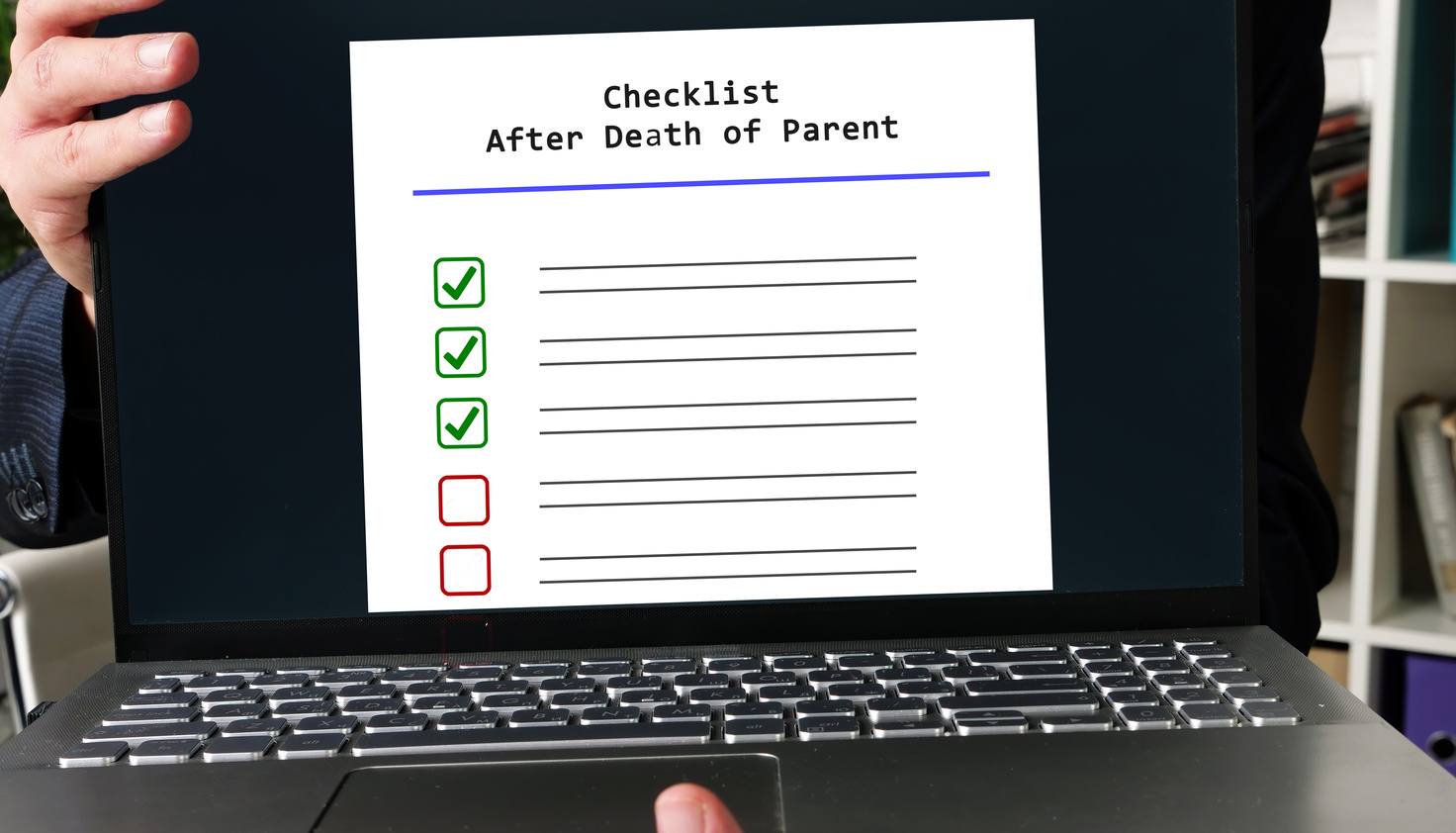Navigating a divorce and selling a home are two of the most stressful things you can go through.
Doing both back to back?
That’s an entirely different level of pressure.
You might be following a court order to sell your house after a divorce.
Or you may be trying to sell your home and move on after an emotionally draining relationship.
Perhaps you haven’t even decided if the timing is right to sell your home after the divorce.
Whatever your situation, there are a lot of logistics to consider.
Should you sell?
Is now the right time?
How do you get your home ready?
How do you communicate with your ex-spouse?
Ultimately, you’ll need all the help you can get as you navigate this process.
Here’s what you need to know about selling a house after a divorce so you can decide on your next steps.
Should I sell my house after divorce?
The timing of your post-divorce home sale is a highly personal decision based on many factors.
Only you can decide whether you’re eager to close a chapter in your life and move on or if you’d rather postpone another high-stress transaction.
In some cases, you won’t have a choice — like when you have a divorce agreement or a court order to sell your house.
But if you do have the option after divorcing, you’ll need to weigh a few pros and cons of selling your property to decide if it’s the right move.
Pros of selling after divorce
- Get a financial fresh start without sharing any assets with your ex-spouse.
- Divide your assets cleanly so you don’t have to worry about figuring out how to divide sale proceeds later on.
- Move on emotionally, cutting ties with a place that may bring painful memories.
Cons of selling after divorce
- It might not be the ideal time to sell if homebuyer demand in your local real estate market is lagging behind the number of homes for sale.
- Selling a home and moving takes its own emotional toll, which may be too much right after parting ways.
- The costs of selling after a divorce may be more than one or both former partners can bear after dealing with an expensive marital breakup.
Factors to consider
You might relate to several of those pros and cons.
If so, how do you decide if a post-divorce home sale is right for you?
Consider the following:
- Do you have a divorce agreement or decree mandating that you sell the property?
- What’s your financial situation and the state of the housing market in your area?
- Are you — and any children involved — ready for this change?
- Will you need to make any major lifestyle changes, such as downsizing to take on a smaller mortgage?
How long do you have to sell a house after divorce?
The time you have to sell your home after a divorce depends upon the specifics of your situation. For instance, your divorce settlement may dictate a specific timeline for selling the property.
Outside of those stipulations, it’s typically best to complete the sale within three years of the divorce.
That’s because capital gains tax rules state that you must have lived in the house for two of the past five years for proceeds to be tax-exempt.
Here’s how it works…
If you and your ex-spouse pass the residency test, you can each deduct up to $250,000 from your capital gains when filing as a single taxpayer.
If more than three years pass, the former partner who no longer lives in the house will only be able to take a portion of that deduction. After five years, they won’t be able to take any of it.
So, it’s best to limit your sales timeline to three years at most.
However, numerous factors may influence you to sell sooner rather than later within that three-year time frame.
For example…
Sharing ownership of a house in which only one former partner lives can cause financial tension around maintenance expenses and mortgage obligations.
Conversely, a down market or a desire to build more equity may give you reasons to delay the sale of the property.
If you’re staying in the house, you’ll also need to consider how long you need to find a new home.
How to sell your house fast after a divorce
In many cases, three years may seem like far too long to wait. You may even be wishing you’d prioritized selling your property before your divorce settlement.
The good news?
There are several things you can do if you need to quickly get your house on the market after finalizing the separation.
Following these steps will help you streamline the process of selling your house after a divorce.
1. Follow your divorce agreement
Reviewing your marital settlement agreement is the best way to start the process of selling your home after divorcing.
That’s because it helps ensure that you’re on the same page with your soon-to-be ex.
This step is crucial for making your real estate transaction as smooth and successful as possible.
Not to mention it saves you from added stress and ensures you comply with any legal agreements.
Here’s what you should verify in your separation or divorce agreement:
- Legal ownership: Confirming who has the right to sell the house prevents legal issues by ensuring that the sale is legitimate.
- Division of proceeds: Agreeing on how to split the sale’s profits up front prevents financial disputes post-sale.
- Responsibility for expenses: Getting clear on who’ll cover ongoing costs, like taxes and maintenance, prevents unexpected financial situations.
- Sale timing: Establishing a sale timeline helps you both better plan your transitions.
- Living arrangements: Determining who’s going to live in the house affects showings and maintenance duties.
It’s also a good idea to talk to your spouse about who will make key decisions regarding the sale.
For example…
How you’ll set the listing price.
And the process for handling offers.
Verifying these aspects of your divorce agreement ensures that both parties are aligned on these critical issues so you avoid any hiccups in the sales process.
2. Choose the best-qualified divorce agent
You may be tempted to forgo hiring a real estate agent in hopes of saving money after a divorce.
Don’t go that route.
A good real estate agent is an invaluable asset in ensuring a quick home sale for a good price.
Trying to sell your home on your own — and possibly while navigating a contentious relationship with your ex — is a recipe for prolonging the sale and leaving money on the table.
You need a realtor to sell your house after a divorce, but not just any realtor.
You want an agent who has a track record of selling homes quickly and for the best price — ideally one who’s worked with divorced sellers.
How do you increase the chances of hiring that professional?
Be sure you know which questions to ask a realtor when selling.
Because being prepared with the right questions will help ensure your agent has the four non-negotiables we always recommend:
Low dual agency rate: When you’re trying to sell your house fast after a divorce, without leaving money on the table, you need an agent who puts your interests first. Listing agents who frequently practice dual agency — representing both the buyer and seller in the same transaction — often care more about their commission than getting the best price and fastest sale. You can learn more about why you should avoid working with these agents in our dual agency guide.
No contract commitments: Being locked into a listing agreement can discourage real estate agents from working as quickly as possible. Make sure you have the option to cancel at any time without owing any commissions. Having this flexibility will create a sense of urgency, which can speed up your home sale post-divorce.
Reputable track record: Online reviews are priceless for giving you the inside scoop on a realtor’s sales practices. Dig deep to find out what others have liked about everything from their responsiveness to their negotiation skills. If possible, look for experiences from other divorced home sellers.
Relevant selling experience: Agents who have sold other homes that fit your market and price range should be one of the minimum qualifications you seek. And when selling after separating, you want someone who has been through this challenging process with others.
3. Prepare the home for sale
Time is of the essence when you’re preparing your home for sale after dissolving your marriage.
There are likely a thousand things you could do to make your house more appealing to potential buyers.
But you need to focus on the most important things that will help you sell quickly –– without a lot of added stress.
Here are a few ways to get your home in shape for listing, showings, and open houses:
- Choose the right repairs: Talk with your agent about what repairs or upgrades will add the most value. You may also want to consider a pre-sale inspection to reveal any major issues that need to be addressed before you list your home.
- Declutter and deep-clean: You want your home to feel as spacious, tidy, and clean as possible. Buyers need to be able to picture themselves in the space without the distraction of dirty floors or crowded countertops.
- Consider a staging service: Stagers can furnish and decorate your home in a way that’s perfectly designed for your ideal buyer. Especially if you and your ex have moved out, you’ll want a stager to bring the home back to life so you’re not showing off empty rooms.
- Get professional photos: Listing photos are your chance to make a first impression on prospective buyers. Make sure your agent hires a professional photographer to show off your home’s best features.
4. Price your home competitively
Your list price is a key facet of your marketing strategy.
Choosing the right price — just below what the market demands — will help you get the most out of the sale without prolonging the process.
And that’s invaluable when you need your house to sell quickly after divorcing.
Here’s another area where a good real estate agent is priceless.
They understand your local market trends and can guide you on the right “asking price.”
How?
A comparative market analysis.
This is an agent’s analysis of your home that results in the price they recommend your property be listed at.
It includes things such as:
- Local market trends
- Recently sold properties in your area
- Ways to increase your home’s value.
The analysis compares your property to the recently sold homes that are closest in proximity to yours.
A good agent has the know-how (and integrity) to:
- Select the best comparable homes
- Make the right price adjustments.
These are the two biggest contributing factors to arriving at the right price.
And a competitive listing price that draws in potential buyers –– without underselling yourself –– is how you and your ex can both walk away happy.
5. Make sure the buyer is vetted
No homeowner wants to drag out the process of selling their house.
That’s especially true if you’ve just gone through a divorce and you’re eager to move on with your life.
But don’t let that sense of urgency lead you to overlook red flags about potential buyers.
Failing to vet and qualify a buyer and their offer could result in hangups in the selling process.
Before you know it, your listing might be back on the market and weeks behind your ideal schedule.
To avoid this harsh reality, be sure your listing agent looks under the hood on every offer — no matter how sweet the deal sounds.
They should look beyond the offer price to examine every detail, including:
- Contract specifics: Are there contingencies or extended days to close? Your agent should know what to look for and what could delay or derail the sale.
- Lender pre-approval: Is the buyer pre-approved for the full price of the home? Are there any concerning stipulations in their pre-approval? What type of loan is it?
- The buyer’s financial situation: How much of a down payment and earnest money are they bringing to the table? Do they have plenty of additional cash in case the appraisal comes in lower than the sale price?
Don’t risk letting your home end up back on the market.
Be sure to cover these questions with your real estate agent before signing off on any offers.
6. Divide the proceeds of the sale
You and your former spouse will divide the proceeds after selling the property.
You’ll both sign off on the final paperwork and deed transfer (separately if need be).
Then you’ll deduct any loan payoffs, real estate taxes, and other expenses related to the sale of the home (this is done by an escrow company).
What’s left over will be divided between you according to your divorce agreement.
You can typically arrange to receive a cashier’s check or wire transfer individually after the sale of the home is finalized.
Keep in mind that the proceeds might not be split 50-50.
For instance, one partner may get a larger payout if they paid for home improvements in preparation for the sale or contributed more toward mortgage payments.
Tips for selling a home after a divorce agreement
So far, we’ve covered the basics of the home sale process.
But that’s not everything you need to know about selling a house after a divorce.
Specifically, three essential details demand special attention in this sensitive situation.
1. Beware of cash-offer solicitations
Cash buyer investors look for home sellers who want to make a quick sale.
Homeowners who are finalizing their separation fit the bill perfectly.
Divorces are public records, making it very easy for real estate investors to find you.
It sounds enticing — sell your house without the hassle of preparing it for listing or working with an agent.
But the catch is that these offers are way below market value.
Real estate investors weigh several factors when making an all-cash offer, such as:
- Costs of repairs and upgrades they’ll need to make
- Real estate commissions and closing costs
- Carrying costs (property taxes, homeowners insurance, etc.)
- Market risk
- Potential resale value.
Their offer needs to allow them to carry all those costs and still make a profit when they sell your home.
So, their offer is going to be low.
It might speed up your post-divorce sale, but you’ll likely leave tens of thousands or more on the table.
You’re better off working with an agent to maximize your sale proceeds without slowing down the sale.
2. Communicate clearly and collaboratively
Maintaining good communication can be one of the most challenging aspects of selling a home after your divorce.
We know that tensions might be high between you and your ex-spouse.
But establishing clear and open communication is crucial for making smart decisions about the sale of your house.
And those decisions may need to be made together.
The last thing you want is to butt heads on something that can cause a conflict.
For example, what happens if one spouse thinks a particular agent is the right fit but the other doesn’t?
What if you want to list the home at one price, but your ex thinks it should be listed at a different number?
Putting your emotions to the side and keeping communication neutral can prevent bumps in the road.
I know that may be easier said than done.
So consider the following if you foresee any difficulties:
- Set up regular check-ins throughout the selling process.
- Use email to share updates and discuss important decisions.
- Involve a mediator or legal counsel when direct dialog is challenging.
3. Approach your sale as a business transaction
Selling your home can feel deeply personal.
It may even bring back memories of when you and your ex-spouse first bought the house together.
But it’s critical to approach the post-divorce sale as a business transaction.
Why?
Because putting business first helps you stay objective and keep emotions at bay during a difficult real estate transaction.
And this approach will help you and your ex prioritize financial and practical outcomes over emotional attachments.
Here are a few ways to stay focused on business during the sale of the property:
- Detach emotionally: It’s difficult but necessary to shift your perspective on your home from being a repository of memories to an asset to be leveraged. The final outcome of the sale will improve when both former partners put financial logic over emotional ties.
- Lean on your agent: A good agent will act as an impartial advisor and advocate for your best interests throughout the entire process.
- Stay informed: Base decisions on data and expert advice rather than personal feelings. Making smart decisions about home improvements, the list price, and offers will help you ensure the best return on investment.
Moving on from your divorce home sale
Selling a house after a divorce agreement is a complicated and emotionally charged process.
But it can be done smoothly and with minimal stress.
You and your ex can achieve a fast sale for a price you’re both happy with if you communicate professionally and stay on the same page.
Working with a top agent can help you stay on track and streamline your post-divorce sale.
You can even choose your agent without any hassle.
We vet agents across the country — ensuring they meet all the most important criteria for a smooth sale after a divorce.
Learn more about how it works so you can find the right agent for selling your home.





